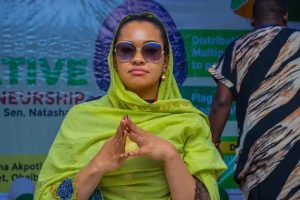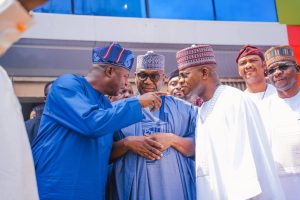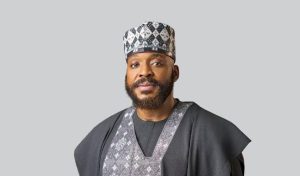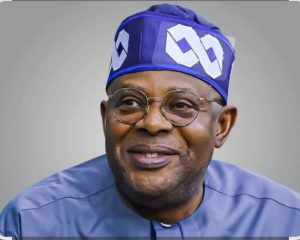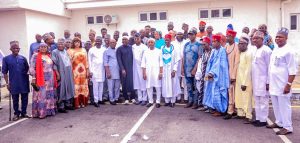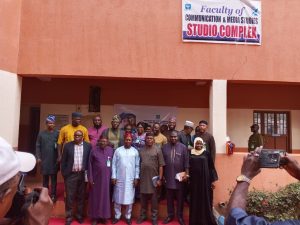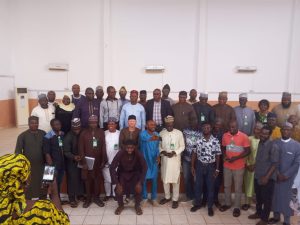Governor Yahaya Bello, 2023 and the North Central Consideration
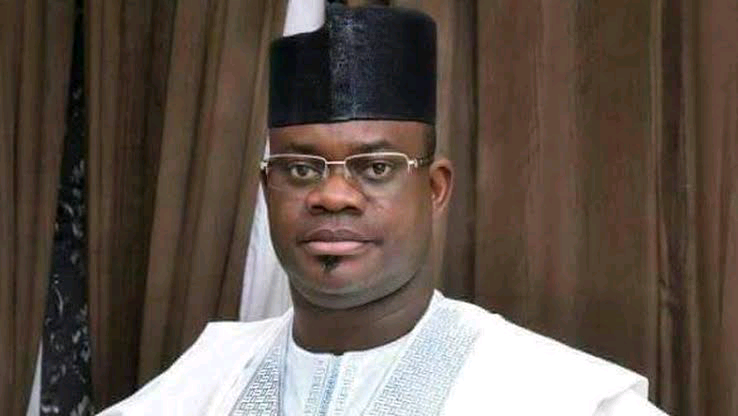
By John Mayaki
Although the next general election is still over a year away, the race to Nigeria’s presidency has begun in earnest. President Buhari of the APC will in 2023 complete his two-term tenure and make an exit, leaving the space open for political gladiators, particularly in the ruling APC, to vie for the position. A few have already indicated the desire to run, while expressions of interest from still shy candidates are becoming noticeable.
Given Nigeria’s especial make-up, the question of who replaces President Buhari as the country’s next leader is just as important as where such a candidate is from. Far from a resort to ethnic politics – as some outsiders are quick to suggest, it is rather an acknowledgment of the country’s ethnic diversity and multiculturalism and a democratic attempt to foster a sense of belonging and inclusion, which is central to the achievement of peace and survival in any similar ethnically varied territory. The issues of race and its intersection with other cultural identities play a significant role in America’s politics and governance, just to cite one example.
Besides, for most Nigerians, it is an accepted truth that the whole of the country as a single, united entity is greater than the sum of its parts. But it is not considered a given. The health of the unity, and its continuous survival, is hinged largely on fashioning and constantly revising a politics and governance structure that benefits all and addresses concerns of marginalization and exclusion where observed.
There have been spirited efforts to do this. The constitution, for instance, makes provision for a federal character principle, and Nigeria’s major political parties adhere to an internal rotational policy premised on the goal of ensuring that each region that makes up the country enjoys a fair shot at leading the country.
But these efforts have come up short in several ways, the biggest and most indicting being the complete exclusion of the North Central region, otherwise called the Middle Belt, from the leadership of the country. It is a shocking fact that often demands explanation considering that, so overlooked is the obvious inequitable treatment meted out to the North Central region, many Nigerians doubt the existence of the problem at all.
Exploring Nigeria’s leadership from the first republic shows that while other regions have been represented (perhaps, overrepresented) in Nigeria’s national leadership, the door has been shut to the North Central.
From independence, Nnamdi Azikiwe (South East) and Tafawa Balewa (North East) presided over the country as Prime Minister and Executive President respectively. In the second republic, Shehu Shagari (North West) deputized by Alex Ekwueme (South East) were the country’s leaders. But for the intervention of the military, the short-lived third republic would have had Chief MKO Abiola (South West) and Babagana Kinigbe (North East) at the helm. Regardless, the combination was mirrored in the following republic with the ascendancy of Olusegun Obasanjo (South West) and Atiku Abubakar (North East) for a period of eight years. They were replaced by the late Umar Musa Yaradua (North West) and Goodluck Jonathan (South South), with the latter going to become the country’s President, deputized by Namadi Sambo (North West).
The outgoing President Muhammadu Buhari and his vice Yemi Osinbajo are both from the North West and South West regions respectively.
There has been no room for the North Central – a baffling exclusion given the region’s extraordinary contribution to the country’s formation and survival, and special significance in national elections as the kingmakers, similar to ‘swing states’ in the United States of America where Presidential elections are won and lost.
There is perhaps no region that better mirrors Nigeria’s diversity than the North Central. It is this fact that makes national elections an interesting affair in the region and why political actors from there have proven themselves adept at understanding the mood of the nation and designing campaigns policies that appeal to the majority – attributes that make them indispensable to the major political parties, and yet another reason why their exclusion from power is unjustifiable.
It is an injustice the country must now come together to address in 2023, with the APC taking a lead in that regard. There is a reason the party bears a special responsibility. Its historic rise to power in 2015 was inspired by a significant shift in the North Central.
In Kogi State, for example, there was a huge, stand-alone 37% shift that handed the APC the state in the general elections, making it one of the most notable states to decisively reject the PDP, backing instead President Muhammadu Buhari and the APC.
Put together, the states in the North Central accounted for a 20.5% shift, the largest swing to the APC in the Presidential election.
Essentially, in the face of inducements and intimidation from a desperate incumbent, the North Central chose the APC and helped the party to power. Its victory would have been impossible without the support, given the requirement of a 25% vote share number in at least 24 votes to win the Presidency.
2023 is an opportunity for the APC to reward the commendable loyalty and for Nigeria to address an age-long injustice by supporting the North Central’s presidential bid. Fortunately, the region’s interest is represented by a capable and qualified candidate in the person of Governor Yahaya Bello whose achievements in Kogi State have strengthened a generational call for youth inclusion in power and confidence of victory against the economic and security woes that presently dog the country.
There is really no excuse. Not for the country or the APC. The North Central has long endured and kept the faith. Now that they have put forward an extremely qualified candidate in Governor Bello, we must return the favor and reward the faith lest it strains – and to our collective detriment.
Mayaki is a Journalist, Historian, Diplomat, Archivist, Documentalist, Communication, Culture and Media expert (Coventry University, England). He’s also an Oxford and Cambridge University-trained entrepreneurship, leadership and sustainability expert. A Professional Consultant on Communication, Management and Strategy (Chattered Management Institute, England).

